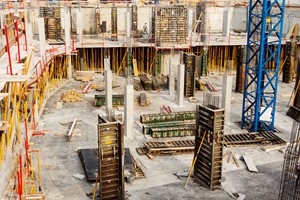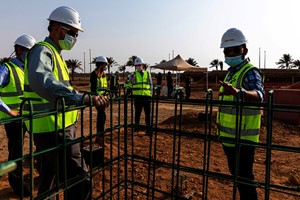Construction Industry
As per a report published by Timetric, the South Korean construction industry's forecast-period (2016-2020) outlook is better than its review-period (2011-2015) performance, with average annual growth in real terms set to accelerate from 0.93 percent during the review period to 2.41 percent over the forecast period. Rises in construction permits for residential, industrial and institutional buildings will also support growth over the forecast period. The industry is expected to be supported by works related to the hosting of the 2018 Winter Olympic Games in Pyeongchang, Gangwon province, as the government is expected to invest USD10.8 billion to construct new stadiums and other related infrastructure. A report published by BMI Research forecasts South Korea's construction sector to expand 1.3 percent in 2017. However, weak long-term growth in the residential sector and the continued contraction of the non-residential sector will continue to undermine longer-term growth in South Korea's overall building industry. Furthermore, high levels of household debt will further cap demand for residential property, which will continue to face headwinds from the slowdown in South Korea's main trade partners.
Housing Construction


On the other hand, the recent surge in housing construction is more related to banks' lending attitudes than to the economy, according to a report recently published by KDI Research. There is a larger increase in housing supply than demand, unlike in the past. The rapid growth is mostly unrelated to non-housing sectors, and instead, is more connected to the easing of banks' lending attitudes towards households following the launch of policy measures aimed at boosting the real estate market. The slight drop in real prices in housing construction, in spite of the sharp increase in construction volume, implies that the recent increase is driven by supply not demand. If slower growth of housing construction appears in the future, firms in the construction industry may suffer from their worsening profitability, the report adds. Despite enjoying improvements in profitability, construction companies may experience weakening financial stability if faced with adjustments and interest rate hikes. Given that structural adjustments during a declining period is much costlier, construction companies with low profitability and weak financial fundamentals should undergo restructuring in advance.
According to the report, the recent surge in housing construction on mounting mortgage debt implies that the expected returns are low in production-related sectors. Increased housing construction on growing housing debt and significantly reduced corporate debt and facilities investment means that funds are rushing into the housing construction sector as a result of the low expected return in production-related sectors.
ACW Staff











